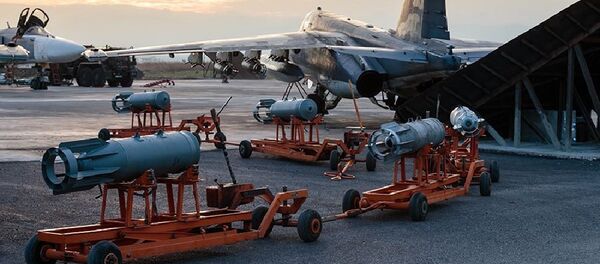Washington has neither a comprehensive strategy for Syria, nor a vision for the future of the Arab Republic, Dr. Celalettin Yavuz, a prominent political analyst and former foreign policy and security advisor to the head of the Nationalist Movement Party (MHP), noted in his interview with Sputnik Turkiye.
"What goals does the US pursue in Syria? It remains unclear. The Americans say that they are combating Daesh terrorists, but at the same time they are fighting against Assad's forces," Yavuz pointed out.
On Thursday, US State Department spokesperson Mark Toner noted, commenting on reported talks between Russia and the Syrian opposition in Aleppo that Washington "would welcome any effort to ease the suffering and to end the fighting."
For his part, German Foreign Minister Frank-Walter Steinmeier stressed Thursday that the talks on humanitarian pauses in Aleppo should continue; at the same time he rejected the idea of exerting new sanctions on Russia over the situation in Syria.
"I can't see how the [new] sanctions at this time would lead us to the situation where we could alleviate the suffering of people there," Steinmeier highlighted.
Although these signals could be interpreted as manifestations of the ongoing political shift, it does not mean the West has reached consensus on the issue, the Turkish analyst believes.
"There is no such thing as the united West today. In the United States elections took place [this November]. Donald Trump's victory came as an unexpected and unpleasant surprise for the EU," Yavuz emphasized.
While the West has yet to develop a unified strategy toward Syrian affairs Turkey continues to conduct its Euphrates Shield operation, Yavuz noted, adding that the operation's progress is not going as fast as planned.
"It appeared that the US didn't oppose the operation. However, four Turkish military servicemen have been recently killed. If Russian and Syrian armed forces were not involved in the attack on the Turkish soldiers, the answer to the question who was behind the assault is self-evident," Yavuz remarked.
Meanwhile, Daesh terrorists are retreating.
The terrorist group will be sooner or later expelled from al-Bab and Raqqa and eventually defeated, the Turkish expert noted, asking rhetorically whether or not Washington has a strategy for what it should do next in Syria.
"So, what's next? Does Washington have any specific strategy for the future of the [Syrian] Arab Republic? I don't think so. I believe that the strategy will begin to take shape after January 20, when US President-elect Donald Trump officially takes office," Yavuz believes.
"It would be good if Trump remains committed to his promises, given in the course of his election campaign, to fight against Daesh together with Russia and Syria," the Turkish analyst stressed.




